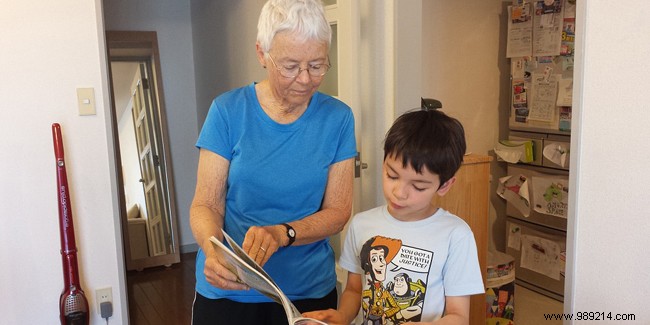
The visitation rights of grandparents are directly linked to the rights of children. According to article 371.4 of the Civil Code, "a child has the right to maintain personal relations with his ascendants. Only the interest of the child can stand in the way of the exercise of this right. If such is interest of the child, the family court judge sets the terms of the relationship between the child and a third party, parent or not" . Grandparents are thus not deprived of their visitation rights as long as this right does not go against their grandchildren. Explanations.
Grandparents can be deprived of contact with their grandchildren when their children are separated or if the parents cut off ties with them arbitrarily. However, grandparents benefit from a right of visitation with their grandchildren in the name of the interest of the child, that is to say if it goes in the direction of his safety and his well-being. -be particular.
The visitation rights of grandparents, clarified and revised by a law of May 2013 of the Civil Code (article 371.4) relating to parental authority, stipulates that a child has the right to remain in personal contact with his ascendants, c that is to say his parents, grandparents or even great-grandparents. The mere wish of a child to see his grandparents constitutes a real reason for the exercise of their right of access.
The right of visit is materialized by the fact that the grandparents can meet their grandchildren momentarily, most often during the day. Depending on the relationship with the child's parents, it may be a few days a month or a year, a weekend or vacation. This meeting can take place in the presence, or not, of the child's parents, at the child's home, at the grandparents' or in so-called "mediatized" places provided to accommodate families who are in conflict. The visitation rights of grandparents are exercised whether the children are natural or adopted and whether their parents are divorced or not.
To assert their visitation rights, the grandparents have the possibility of appealing to the family court judge of the regional court of the place of residence of the child concerned in the event that all relations with the parents are severed, in the event of a disagreement with the latter or if attempts at mediation to fix the right of access have failed. It is indeed possible, before any legal action which can have serious consequences in terms of the relationship between grandparents and parents, to have recourse to family mediation, a procedure which aims to restore family ties in the event of conflict. In the case of unsuccessful mediation and referral to the family affairs judge, the latter essentially bases himself on the interest of the child to grant or not a right of visit to the grandparents, that is to say that is, he decides on the solution best suited to the needs of the child. If this right is granted, the family court judge sets the terms.
The family court judge can also oppose this right if the interests of the child are in question. It can be for example to refuse this right of visit in the event of brutality or alcoholism of the grandparents for example, if the parents of the child bring the proof of a serious reason to refuse this right of visit, or even if the bad relations between the grandparents and the parents cause a climate which is likely to disturb the balance of the child. The simple fact that a child refuses to see his grandparents can lead the family court judge to refuse visitation rights to the grandparents. In this case, the grandparents have one month from the judge's decision to appeal.
Appealing to a family court judge is not possible directly. Grandparents must go through a lawyer, hence the costs that sometimes require the use of legal aid, if they cannot bear them. It is often a very long procedure, lasting between 18 months and 2 years.